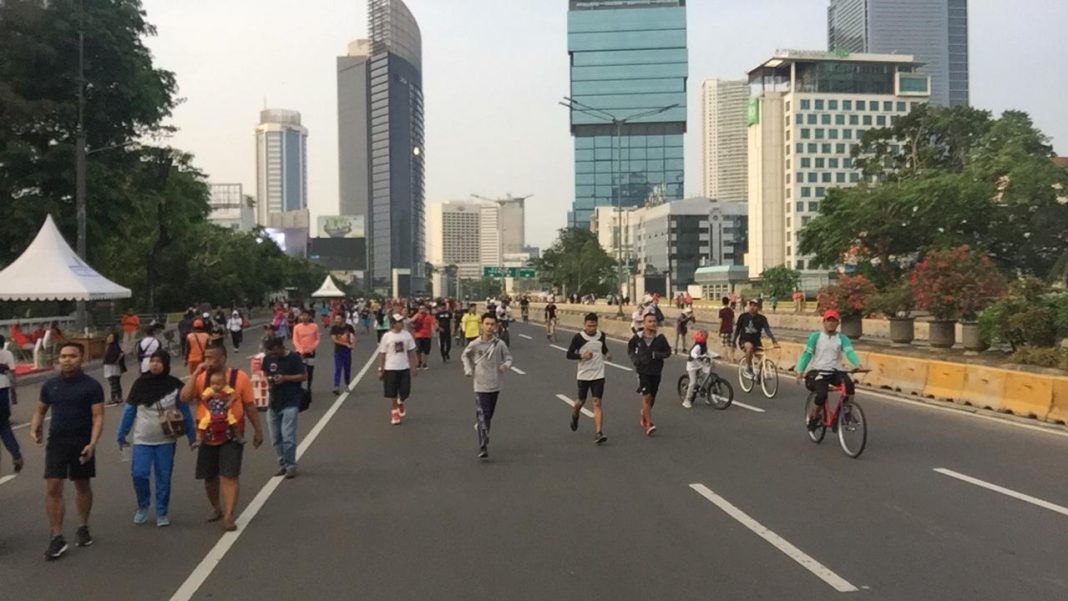Picture this: 22 September 2024! It’s World Car Free Day, and the streets of Jakarta, usually teeming with traffic, are filled with cyclists, pedestrians, and public transport users. The air feels fresher, the city seems quieter, and you can’t help but wonder: what if every day was like this? While a completely car-free world may still be a distant dream, technology is providing us with new tools to make our cities cleaner and more sustainable. One such tool is telematics.
What is Telematics?
Telematics is like a super-smart GPS system for cars. It collects data on how a vehicle is driven, including its speed, acceleration, and location. This information might seem mundane, but it’s actually a goldmine for researchers and city planners. By analyzing telematics data, we can gain valuable insights into urban mobility patterns, fuel consumption, and even the amount of pollution generated by cars.
The Study: Turning Data into Maps
A recent study by Ghaffarpasand and Pope (2023) has taken telematics data to the next level. They’ve developed a method called “Geospatial and Temporal (GeoST) mapping of urban mobility”. This approach uses telematics data to create detailed maps that show how cars move around cities, how much fuel they consume, and how much pollution they emit.
The researchers focused on the West Midlands region in the UK, collecting telematics data from thousands of passenger cars in 2016 and 2018. They then used this data to estimate fuel consumption and emissions of carbon dioxide (CO2) and nitrogen oxides (NOx), which are major contributors to air pollution and climate change.
Key Findings: The Impact of Driving Behavior
The study revealed some fascinating insights:
- Fleet Renovation Matters: Newer cars, particularly those meeting the Euro 6 emission standard, were found to be significantly cleaner than older models. This highlights the importance of phasing out older, more polluting vehicles.
- Road Slope and Traffic Conditions: The study also found that factors like road slope and traffic congestion can significantly impact fuel consumption and emissions. This information can be used to design more efficient road networks and traffic management systems.
- Rush Hour vs. Non-Rush Hour: Interestingly, emissions were found to be higher during non-rush hour periods. This is likely because cars can travel at higher speeds and accelerate more frequently when traffic is lighter, leading to increased fuel consumption and emissions.
Relevance to Indonesia and World Car Free Day
These findings have significant implications for Indonesia, a country grappling with the challenges of rapid urbanization and increasing traffic congestion. As more and more people take to the roads, air pollution levels are rising, posing a serious threat to public health and the environment.
World Car Free Day serves as a powerful reminder of the need to rethink our reliance on cars. The study’s findings underscore the importance of promoting sustainable transportation options, such as public transport, cycling, and walking. By reducing the number of cars on the road, we can improve air quality, reduce greenhouse gas emissions, and create more livable cities.
In addition, the study highlights the potential of telematics data to inform policy decisions and urban planning efforts in Indonesia. By understanding how, when, and where cars are driven, we can develop targeted strategies to reduce emissions and promote sustainable mobility.
Conclusion
Telematics is a powerful tool that can help us understand the impact of our driving habits on the environment. By harnessing this technology, we can make informed decisions about transportation policies and urban planning, paving the way for a cleaner, greener future. As we celebrate World Car Free Day, let’s remember that every step we take toward sustainable mobility, no matter how small, can make a big difference.

